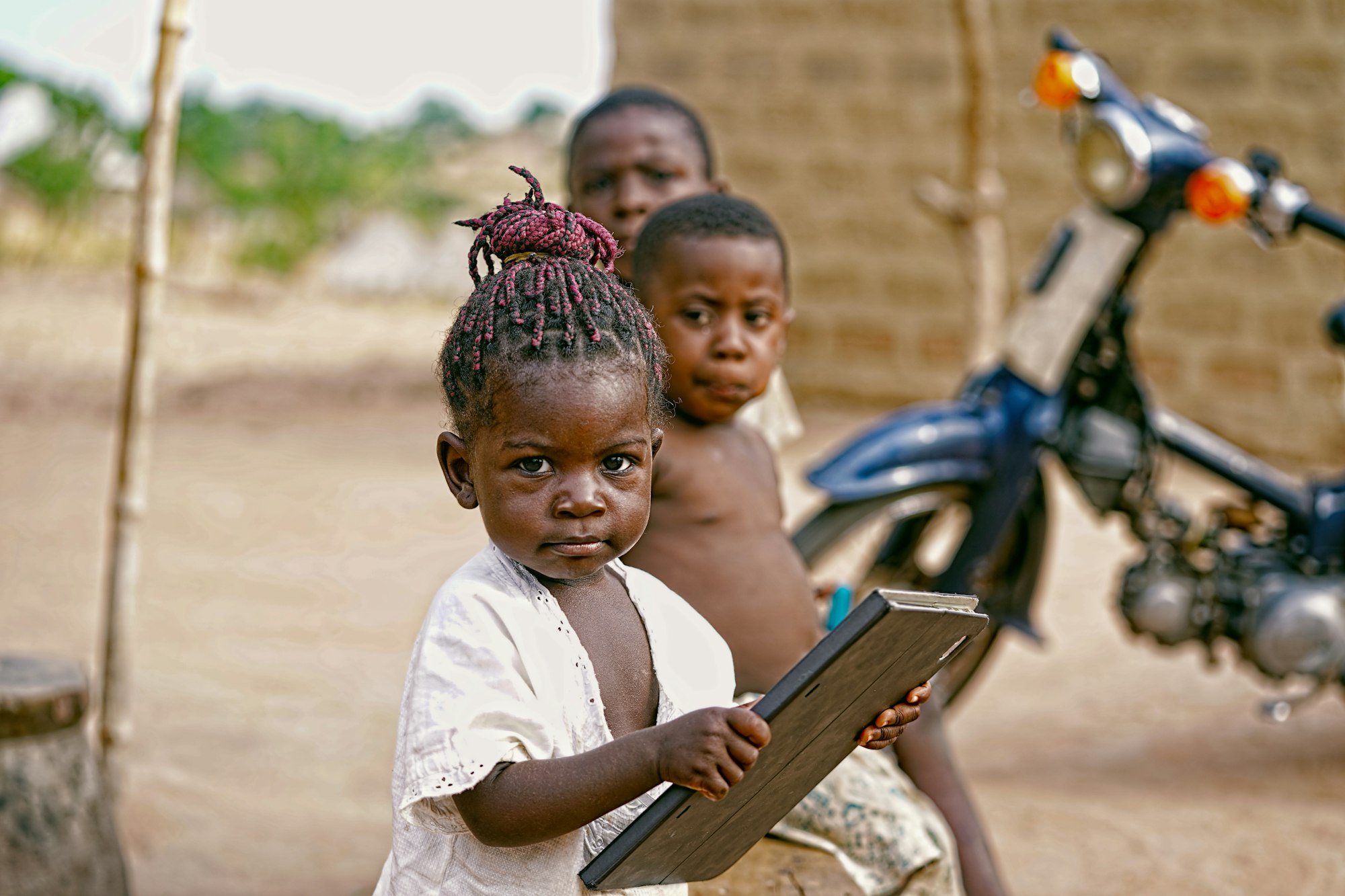
God woke up this morning just to make ME miserable. Really? We aren't that important in the Grand Scheme of Things
This morning, a few minutes before I hit the elliptical for the morning rush, I finished a short reading which really got under my skin. I'm of that generation which grew up on a farm, decades before there was such a thing as a computer, when a transistor radio was THE almighty device. Said device, bright turquoise and cheap, accompanied me during those long, sweaty summer days that I cleared weeds out of our pastures so that horses could graze.
Weeds that were way over my head. More like trees, to a ten-year-old. But I digress. Let me please set the stage.
As kids, for the most part our parents dote on us and make us the center of the Universe. At least until we start tearing up the house as toddlers, the world really does revolve around us. It's how we are hard-wired, especially with parents insisting on how special, unique, brilliant and wonderful we are. Kindly, I am well aware that this is not always the case for too many. Most proud parents need their kids to be uber-special because that validates that THEY are uber-special.
It's natural that we're surprised when we show up in kindergarten to find out that a) not only do other children exist in the world and some of them may even share our name, and b) we have to share the sandbox, toys, cookies and possibly space, and c) that requires manners.
Manners which, assuming that we learn them, make us safe to be around.

Not everyone progresses past the surprise stage into manners, which requires sharing, which is necessary for community. These days, with parents shoving digital babysitters into kids' hands as soon as they can hold one, the distraction from human development starts earlier and earlier. One reason is because Mommy and Daddy are also distracted, which exacerbates the issue.
The reading (below) from this morning underscores what I am seeing everywhere on line. The addiction to our devices robs child and adult alike from critical emotional development, and refocuses the attention entirely onto the self. The challenge with that is that this unfortunately, and by perfect design, shuts out others, their needs, their humanity, and invites us to see the entire world as revolving around us.
Owing us, as it were.
In other words, we remain in infancy. Anyone who has dealt with alcohol or drug addiction, or has someone in the family who has, knows that the moment the addiction begins, the lifelong search for the next dopamine hit trumps absolutely everything else. People may grow into adult clothing but they are emotional infants.
There were two in my family, father and son. Alcohol and drugs for those generation. For the current generation we have any number of addictions from oxy to sex to shopping Jones, but one of the worst is social media. For even when you and I are not addicted to behaviors or substances, we can indeed be so distracted from life and love and each other that we are not growing at all.
Social media has a rather evil way of draining the energy out of us, because of how it causes us to reinforce rather unfortunate, but completely natural and normal human feelings. Feelings which, if we are on a growth path, we notice, observe, and if wise, we choose to work on them for they don't serve.
We are at risk of being utter parasites, damaging every relationship with our neediness to be special, better than, more important.
So thanks for coming this far, and here I share the reading about how our feelings can suck the air out of the room:
...Perhaps I feel I am not valued enough by others. I am identified with my feelings and and thoughts about how people treat me and their attitudes towards me. I am misunderstood, people are not polite and courteous enough. I feel I am not respected. All this, of course, is my imagination. Yet it torments me and drains me of energy. It makes me suspicious of others, hostile, vengeful. Life is unjust, and so is the attitude of others towards me....I expect people to express esteem and admiration for me, recognize my cleverness, intellect, ingenuity, good taste, eloquence and sophistication, and all-around superiority. But I must try to see how devastating these attitudes can be. They can corrode my entire life and my relationships with people. As I try, I will see which of these aspects are attributable to me and make it my task to be especially attentive and observe them. -John Fuchs, Forty Years After Gurdjieff, A Guide to Practical Work (author bolded)
We are born selfish. There's nothing wrong with that. Community, cooperation, learning to share and give, to serve and support teach us how to be valuable to that community and to feel genuinely valued ourselves. We get value from giving value.
However, when we spend so much time focusing on what we're owed, what we think others think of us (kindly, they are focusing on what others think of THEM), we do indeed end up hostile and suspicious.
Social media was designed to appeal to the absolute worst aspects of our nature, and it is brilliant in feeding the very feelings described above. The author, John Fuchs, spent much of his life in Denver, doing this kind of personal work, and dedicated his life to understanding both his own compulsions and those of others.
This book was written in 1994, about what's called The Fourth Way. My trainer in this material was John Fuchs' student. I was a student for eight years and continue to read and study this material for one simple reason: it gets up my nose about what I think I knows (sorry).
I know nothing.
Fuchs' book has been a bible of sorts for me since 2008, and like all difficult personal work, the pages still periodically slap me in the face with how far I have yet to go. While not written for a tech age, it speaks to our human parts which simply don't change much.
The writing in this small book keeps me humble, and reminds me regularly that when I feel fear or resentment or anger, those are critically-important reminders to look at how I am showing up. Not at others. Nobody "makes me" feel anything. My emotions and reactions are my own, and they are my responsibility to manage.
In five minutes I head to the Oregon Coast; Hump Day happens on Tuesday this week. I am spending the night in Florence, and the morning on the sandy dunes, dancing in the wet sand. Those days away from social media are a boon to my quality of life. The more I practice leaving that black rectangle somewhere else, the more in the moment I can live.
That doesn't say that my phone isn't valuable. It's a tool. What isn't valuable is the combination of lost time scrolling, and all the toxic material that cascades out into my life, my heart and brain from folks suffering from the hostility and bitterness so well-described in Fuchs' paragraph above.
We are owed nothing. We are given a life. What we choose to do with it speaks to our character. It's our job to move beyond the intense self-centeredness with which we begin our lives as babies and enter into some semblance of other-awareness, other-appreciation, and with any luck, service to others in our work and lives.
The way I see it, that really is the only way to feel welcome and validated in a world that feels hostile. It isn't hostile unless we bring hostility to the world. It can feel that way when we are harboring hate towards a society that doesn't see us as The Second Coming, and never will.

mature (v.)
c. 1400, maturen, "encourage suppuration;" mid-15c., of plants, "cause to ripen, bring to maturity," from Latin mātūrare "to ripen, bring to maturity," from mātūrus "ripe, timely, early," related to māne "early, of the morning," from PIE *meh-tu- "ripeness."
We can, but often never do, ripen as human beings. Truly mature people have a highly developed sense of and appreciation for others, their needs, respect for their ideas and opinions, and can create space not only for other-ness but for opposing viewpoints. But they also are mature enough to draw clear boundaries where others' inability to respect people becomes toxic and dangerous.
I appreciate tech when it is a servant. But tech is too many people's master, with the concomitant drop in empathy. As one wag once said about money, it's a great servant but a terrible master.
Mastery comes of knowing our nothingness first. That clears the slate so that something deeply worthwhile can grow, flourish, evolve and ripen. Mastery also begins with knowing where something else masters you: your tech, your selfishness, greed, envy, hate, jealously, addictions. All of us have them, my hand is WAY up here. All I know is that the more weeds of discontent I clear out of my garden, the more room there is for beauty to grow.
I'm not owed that. I earn that. So can we all.

Comments powered by Talkyard.